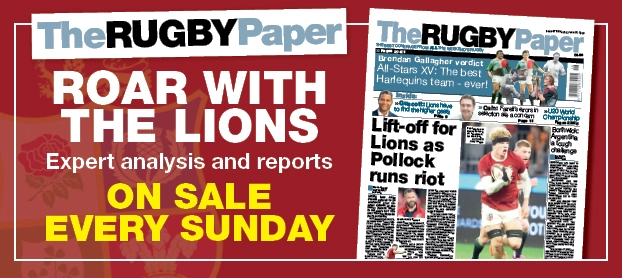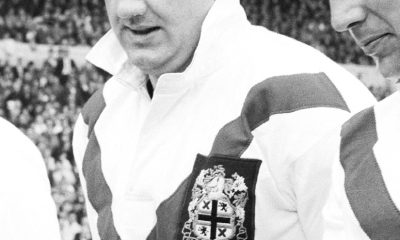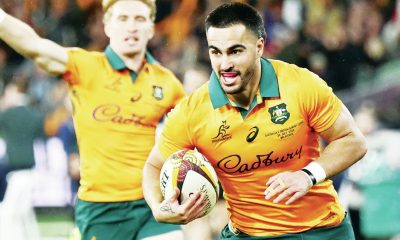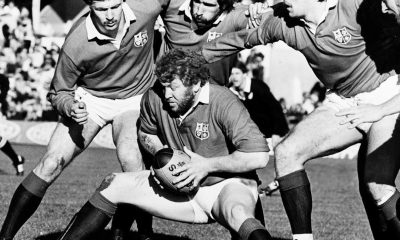

Before the ‘Grannygate’ scandal exposed Brett Sinkinson and Shane Howarth as New Zealanders playing for Wales under false pretences, Henry urged the WRU to sign five of the best young players in South Africa on central contracts.
After three years, glory be, they would all be eligible to play for Wales and, as dear old Bill McLaren might have said, there would have been much dancing in the streets of Potchefstroom and Pretoria.
Under IRB law there was nothing illegal about Henry’s scheme. Thankfully there were some on the Union, most stridently the then vice-chairman Les Williams, who saw it as a cynical exercise to naturalise a few South Africans at the expense of local players.
“We may not be very good right now, Mr Henry,” Williams told him at the time. “But if we have to lose, then we lose with a Welsh team full of Welshmen.”
How times and attitudes change. Some 15 years later, the WRU have formally approved the importation of what they call ‘time servers,’ players from the Southern Hemisphere who will become eligible for national service once they have completed three years’ unbroken service at Regional level.
As revealed in The Rugby Paper last week, there are now five such ‘time servers’, three at the Scarlets (Jacobie Adriaanse, George Earle, Johanes Snyman), two at the Ospreys (Rynier Bernardo, De Kock Steenkamp. A sixth, Ospreys wing, Hanno Dirksen has served his time.
The WRU have done nothing wrong in adopting a follow-the-herd mentality. Everyone else does it, so who are we to stand on our dignity and keep Wales for the Welsh?
Players used to cross the Equator to Europe without any notion of representing the country of their employment. Now it’s become part of the deal which explains why Steenkamp spoke enthusiastically this week about the possibility of playing for Wales in three years’ time.
Those South Africans, New Zealanders and Australians not quite good enough to make it as Springboks, All Blacks or Wallabies can reconvert themselves by taking short cuts into a different international arena. The IRB’s refusal to lengthen the residential qualification from three years has long smacked of complacency.
Over the last four years, eleven South Africans have been capped by the home countries and France, the majority on the residential rule.
England – Mauritz Botha, Hendrie Fourie, Brad Barritt.
Ireland – Richardt Strauss, Robbie Diack, Rob Herring.
France – Bernard le Roux, Daniel Kotze, Antonie Claassen.
Scotland – Tyrone Holmes.
Wales – Andries Pretorius.
Some of the above, like Holmes whose father was born in Scotland, have been free from the ‘time server’ category. Rory Kockott, Castres’ South African goalkicking scrum-half, is now eligible for France and many more are in the process of becoming equally eligible.
The list, of course, extends to those from other countries, like Ireland’s newly-capped prop Rodney Ah You of Connacht. Another New Zealander, Ulster‘s Jared Payne, will become officially Irish by November and therefore a legitimate contender to succeed Brian O’Driscoll.
A cap invariably means an automatic pay rise, even if that cap has been won for a country far from home. Wales, of course, have never been slow to offer Englishmen a welcome in the hillsides. While Colin Charvis from Solihull grabbed the opportunity with open arms, others like Colin Smart of the after-shave fame, Stuart Barnes and Liam Botham politely declined.
For a few it is still a matter of conscience. Two years ago, Wales invited Ben Turner, an Englishman playing for Cardiff City, to join their squad on the strength of a Welsh grandmother.
“It was very flattering to be asked,” Turner said. “The thought went through my head: ‘Who am I to turn down playing for Wales?’ There are lads who grow up dreaming of playing for Wales because they are Welsh.
“I couldn’t justify it and clear my conscience. I’m English and that’s how it is. I didn’t want to pretend to be a Welshman.”
Well said, Mr Turner, a professional sportsman with an acute sense of morality. How much longer will we have to wait before the IRB accepts that a three-year qualification period is nowhere near long enough and does something about it?
*This article was first published in The Rugby Paper on September 14.
































You must be logged in to post a comment Login